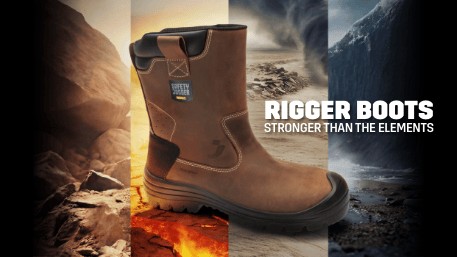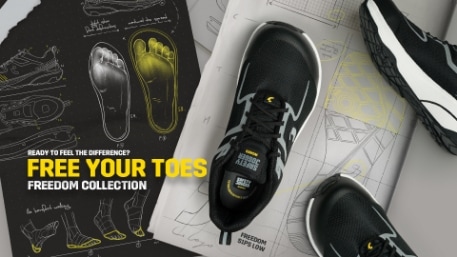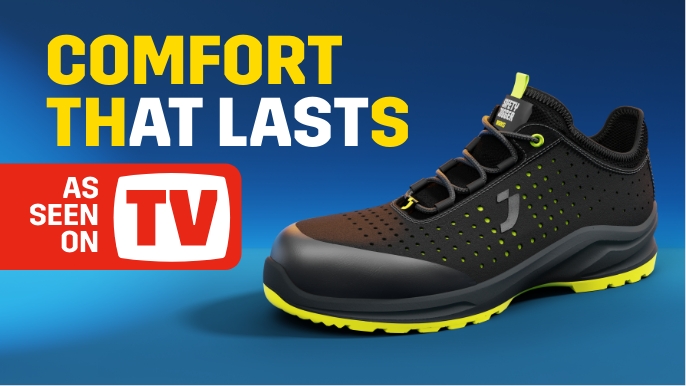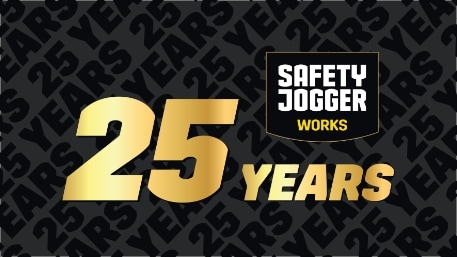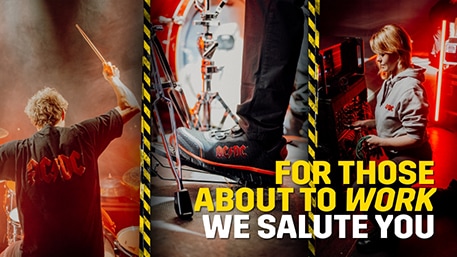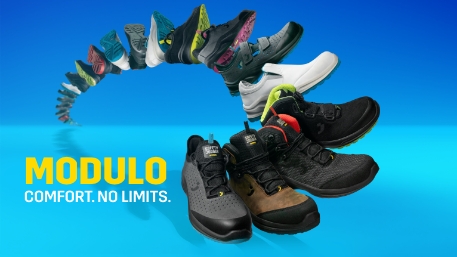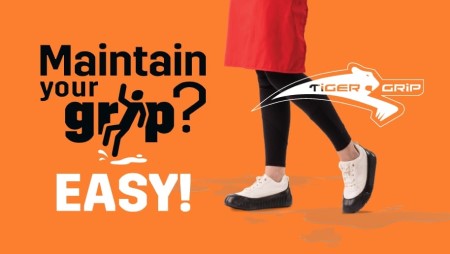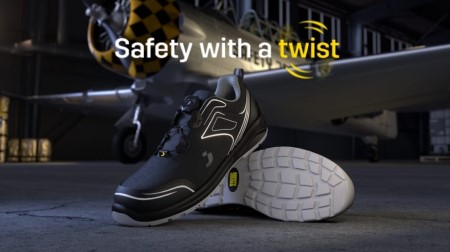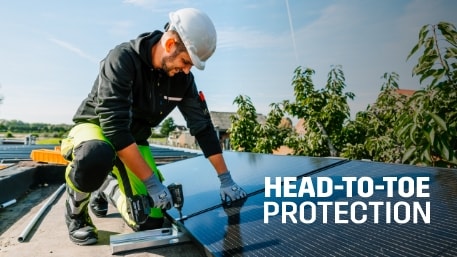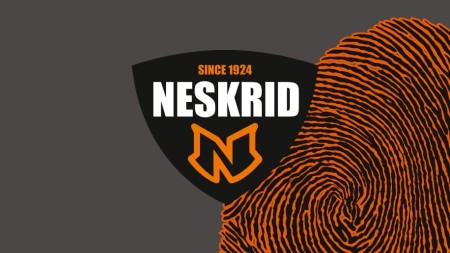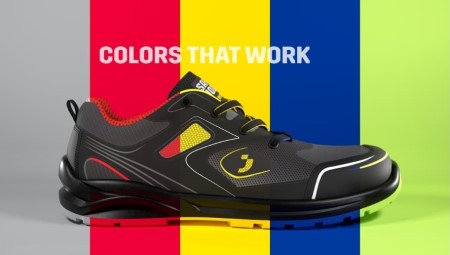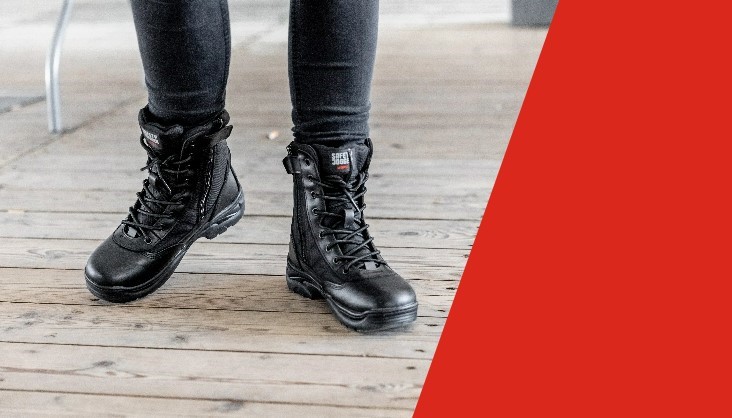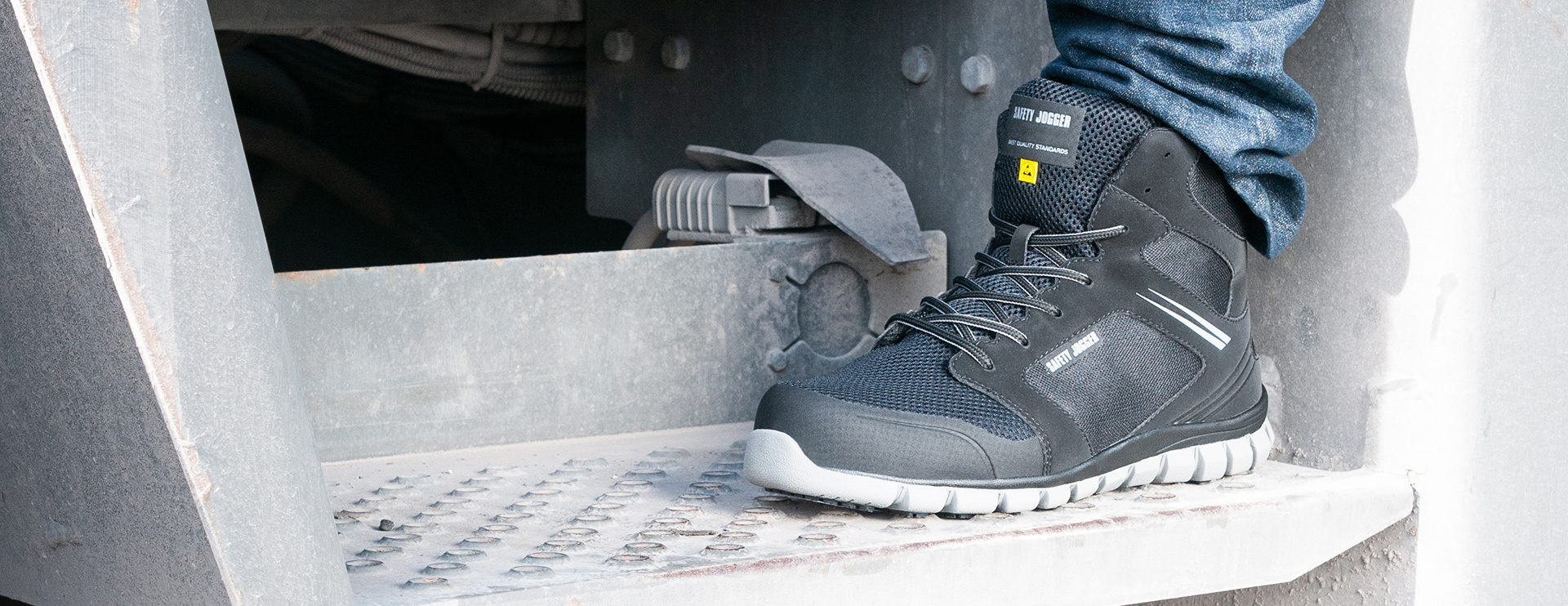
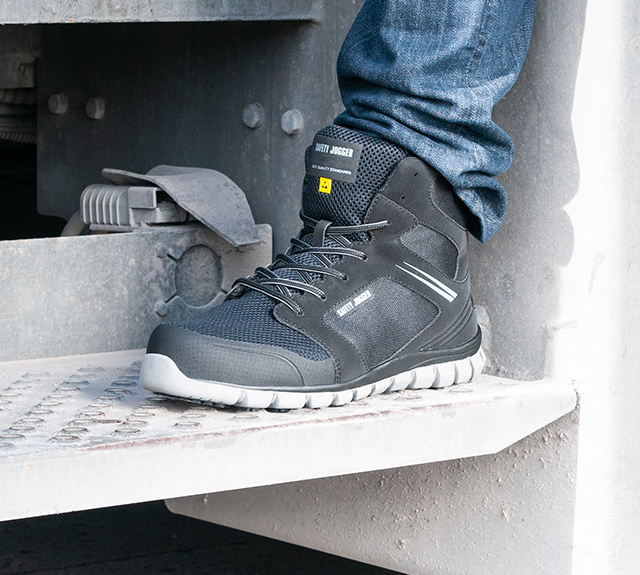
ESD vs. antistatic: what is the difference?
Did you ever walk across a carpet, and got a shock when touching a doorknob for instance? Then you have experienced static energy! The energy that builds up in your body will find its way out and result in a little spark when you touch something metal. Those sparks could cause serious problems when you work in an industrial environment where solvents, fuels, etc. are available or sensitive electronic components are used.
To avoid these kinds of accidents, we can distinguish two categories of safety shoes: insulating shoes and conductive shoes. While insulating shoes completely isolate you from the ground, conductive shoes conduct electrical charges to the ground. Conductive shoes are either antistatic or featured with ESD. But what is the difference between both? We’ll explain it in the video below!
Part 1
Part 2
In summary:
Antistatic footwear has an electrical resistance between 0.1 MegaOhm and 1000 MegaOhm. These safety shoes will not allow a build-up of static energy in your body and therefore avoid sparks that could ignite a fire or an explosion. Antistatic shoes are ideal in environments where solvents and fuels are used.
ESD footwear has an electrical resistance between 0.1 MegaOhm and 100 MegaOhm, which is even lower than antistatic footwear. This means that the build-up of electrostatic charges will be even more limited and that they are discharged about ten times faster. Shoes with ESD also prevent sparks and can even protect sensitive electronic equipment.
You might also like to read

Breathable leather work boots
Leather work boots mean you are wearing pure quality: resistance to tear / breathability / flexibility / high resistance to puncture & much more ...
Leather boots
Men's steel toe work boots
From a classic to sporty look, from an affordable high quality work boot to the ultimate future-proof boot provided with revolutionary comfort & safety features, we’ve got it!
Steel toes
Slip-on work shoes for the food industry
Slide into perfect style and all-day comfort with the Safety Jogger slip-on work shoes. From working in the food industry to the after-work support!
Slip-on shoesGROW YOUR BUSINESS & BECOME A DEALER
Safety Jogger is worldwide and always looking for people who trust our brand as much as we do! We have a team of expert's ready for you to help with questions about our brand, technologies or reselling our products. So, don’t hesitate to fill in this form, we usually get back to you within a day!
Further information?
Fill in the form and we’ll get in touch!
